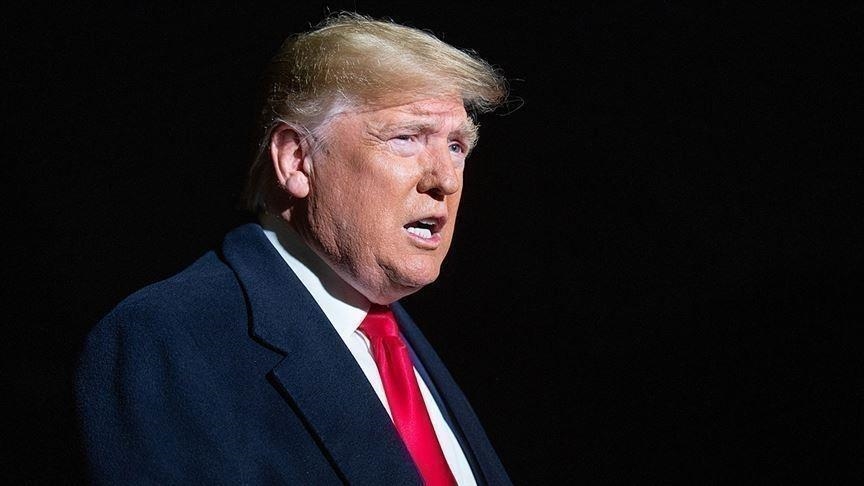WASHINGTON
US President Donald Trump stood in lockstep Tuesday with his national security advisor, saying Mike Waltz “has learned a lesson, and he’s a good man” after a journalist was accidentally added to a group chat of senior officials planning strikes on Yemen’s Houthi rebels.
Trump said the Atlantic magazine’s editor-in-chief Jeffrey Goldberg was added to the Signal messaging group by a staffer in Waltz’s office, describing the error during an interview with NBC News as “the only glitch in two months, and it turned out not to be a serious one.”
Goldberg said in his bombshell report that he had been mistakenly added to the group of senior officials on the Signal messaging platform on March 13 after receiving a connection request from an account bearing the name of National Security Advisor Mike Waltz two days prior. Alongside him in the group were accounts bearing the names of Waltz, Secretary of State Marco Rubio, Defense Secretary Pete Hegseth, Director of National Intelligence Tulsi Gabbard and Stephen Miller, a top aide to Trump.
The messaging group was established by Waltz’s account as a forum to coordinate strikes against the Houthis amongst what is known as the principals committee (PC) — a small group of the senior-most national security officials, including those listed above, the Treasury secretary and CIA director.
Shortly after being added to the “Houthi PC small group” by Waltz, Goldberg began receiving messages from senior officials debating whether or not to execute strikes on the Houthis. An account tied to Vice President JD Vance initially pushed back on quickly launching the attacks, saying they would benefit Europe far more than the US, saying “3 percent of US trade runs through the Suez. 40 percent of European trade does.”
He was referring to the Suez Canal, the strategic waterway at the north end of the Red Sea. The Houthis have been launching attacks on commercial and military vessels in the area since October 2023 in a bid to pressure Israel to halt its war on the Gaza Strip.
Trump has continued to carry out retaliatory attacks on the Houthis that began under his predecessor, President Joe Biden. The Houthis have not been deterred, however, and have continued their drone and missile attacks.
“I am not sure the president is aware how inconsistent this is with his message on Europe right now. There’s a further risk that we see a moderate to severe spike in oil prices. I am willing to support the consensus of the team and keep these concerns to myself,” Vance wrote.
Hegesth quickly responded, saying he understands Vance’s concerns, but added that the Pentagon is “prepared to execute, and if I had final go or no go vote, I believe we should.”
“This [is] not about the Houthis. I see it as two things: 1) Restoring Freedom of Navigation, a core national interest; and 2) Reestablish deterrence, which Biden cratered. But, we can easily pause. And if we do, I will do all we can to enforce 100% OPSEC,” he said, referring to operational security.
Waltz then said that regardless of whether or not the strikes are carried out immediately, or given a time buffer, “it will have to be the United States that reopens these shipping lanes.”
“Per the president’s request we are working with DOD and State to determine how to compile the cost associated and levy them on the Europeans,” he said.
On the morning when the strikes were ultimately carried out, March 15, Goldberg said he received messages that highlighted “the shocking recklessness of this Signal conversation,” including key operational details of the strikes such as intended targets, and the weapons the US would use. Congratulatory messages among the senior officials began to appear as the strikes unfolded.
“Kudos to all – most particularly those in theater and CENTCOM! Really great. God bless,” said Susie Wiles, Trump’s chief of staff.
Goldberg left the group the following day.
The White House denied that war plans or other classified materials were shared in the chat, saying Goldberg was “inadvertently added.” Spokesperson Karoline Leavitt said neither war plans nor classified materials were shared in the chat, and the White House Counsel’s Office “has provided guidance on a number of different platforms for President Trump’s top officials to communicate as safely and efficiently as possible.”
It is unclear if Signal was one of the platforms greenlit by the White House attorneys.

